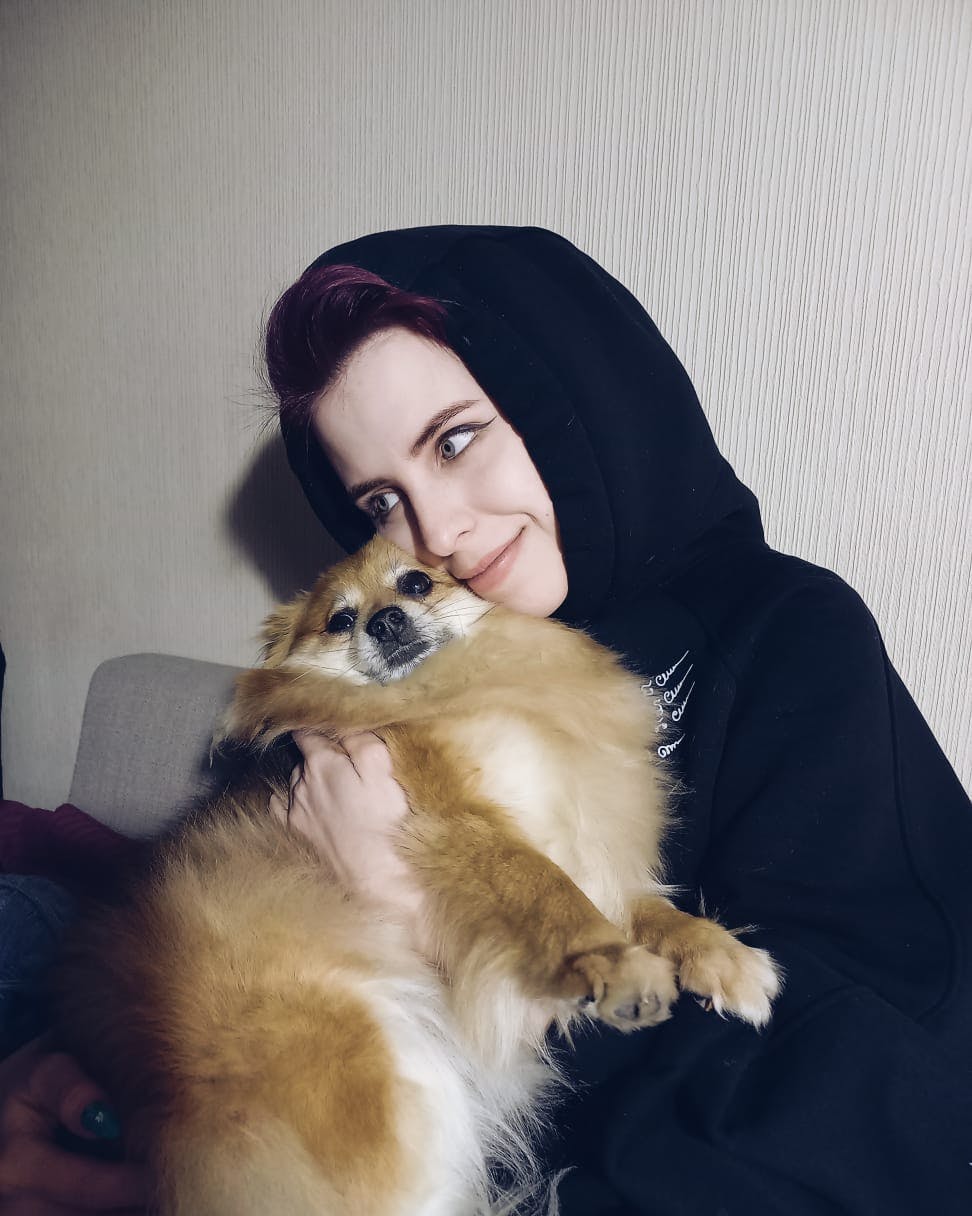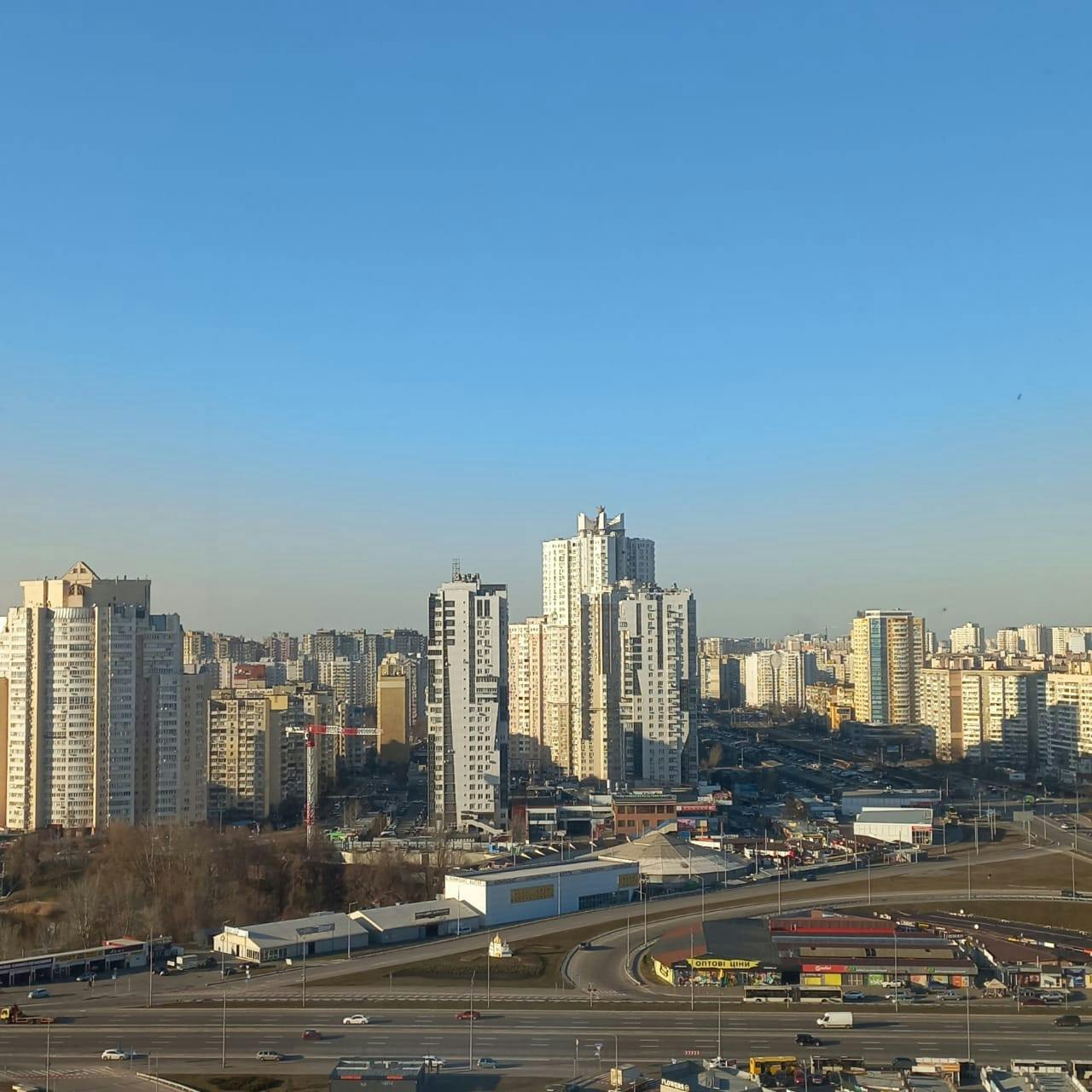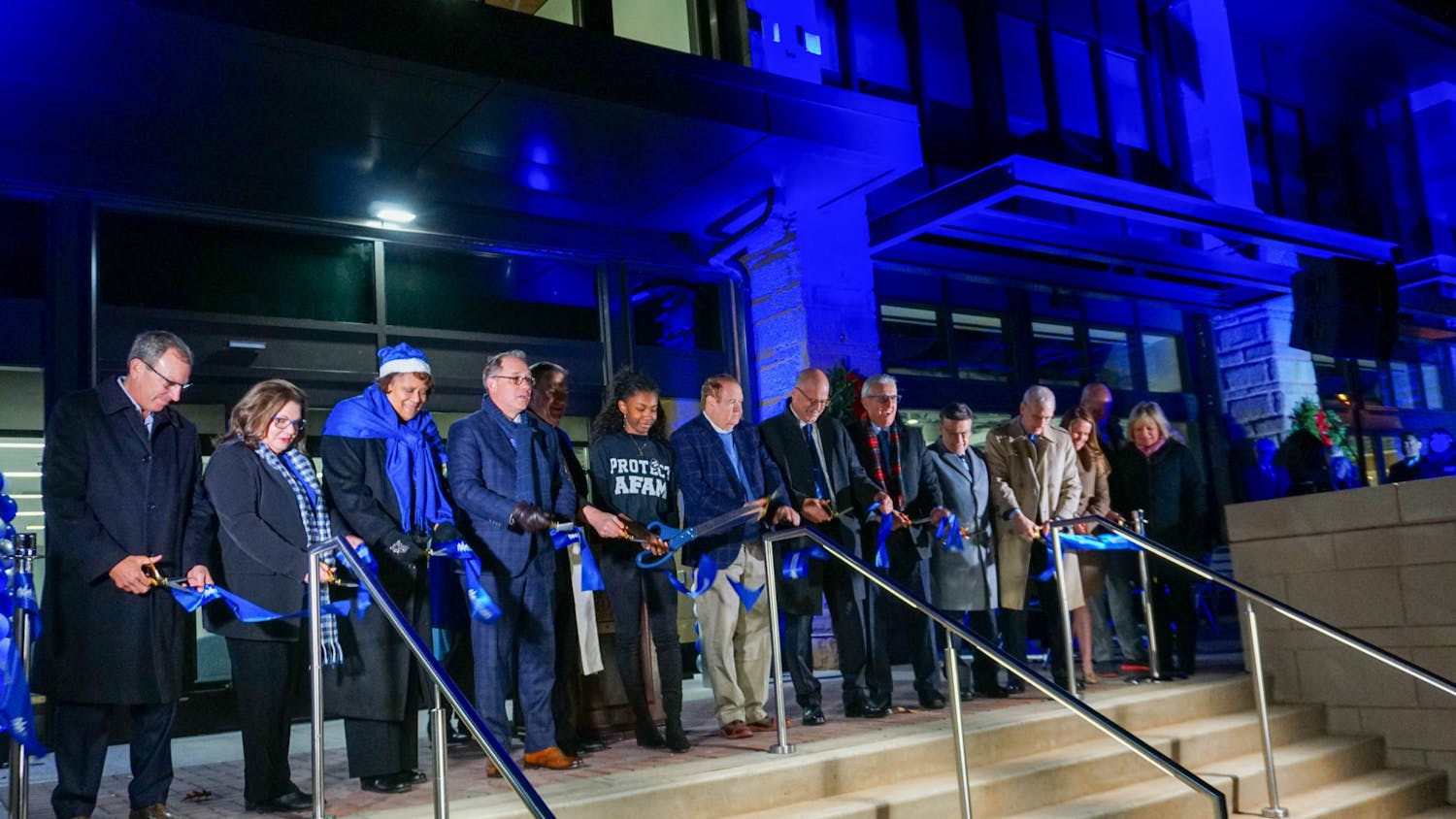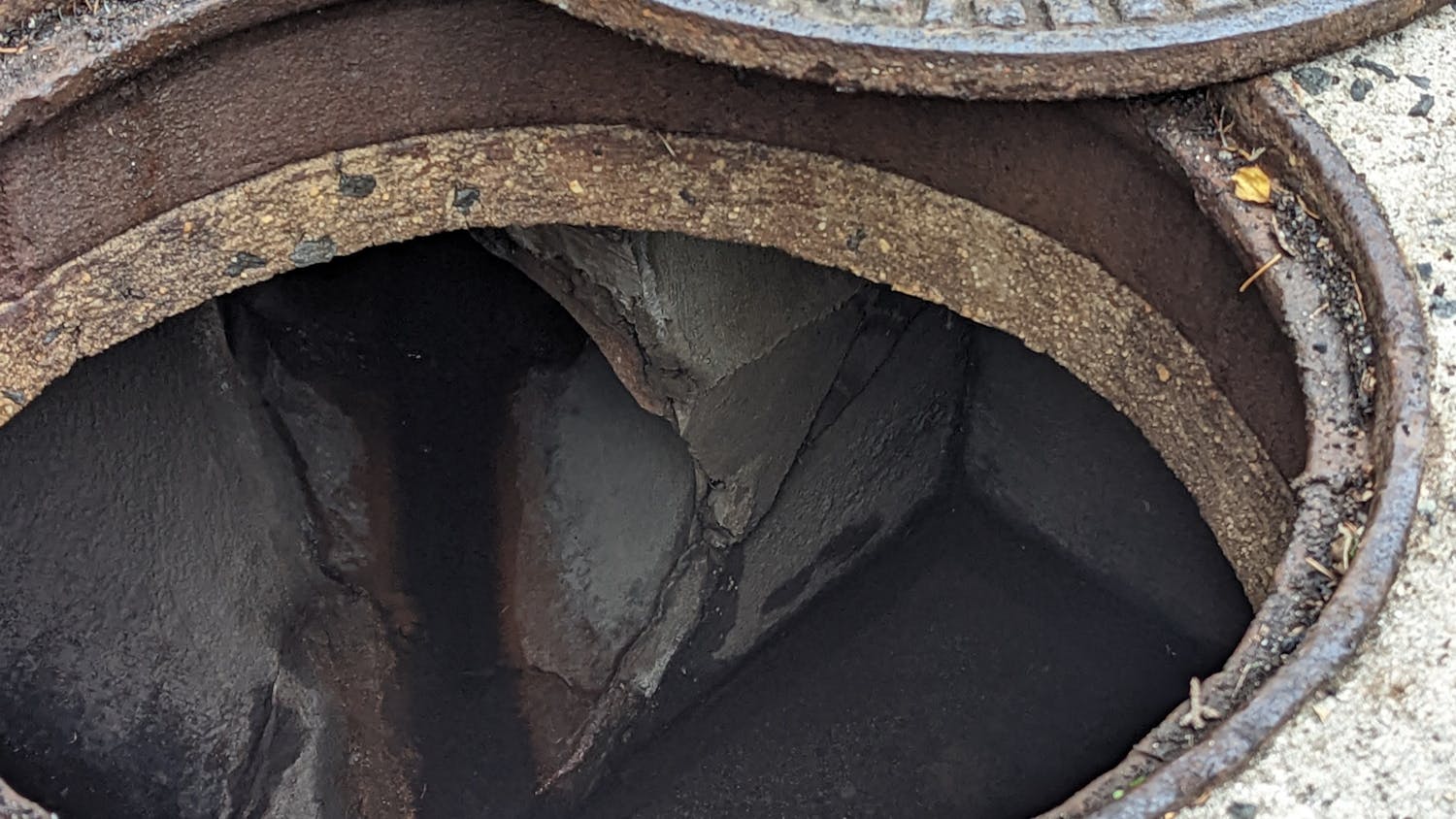On Feb. 23 of last year, 22-year-old Ukrainian graduate student Martha Akimova wrapped up a dance practice session with her friend in Kyiv, Ukraine’s capital.
“See you tomorrow!” she said to her friend, before heading home. She planned to get her nails done and a haircut the next day.
Close to 4:30 a.m. on Feb. 24, she heard what sounded like a boom in the distance. She thought nothing of it, thinking it was from her “crazy neighbors.” Then, coming closer and closer, more bombs went off.
“No, that’s definitely not my neighbors,” she thought. Looking out her window, she saw them: Russian troops making their way into Kyiv. The invasion had begun.

Kyiv, Ukraine was Putin's first target (Photo via Akimova).
She went to her parents’ bedroom, where she recalls they were peacefully sleeping. When she woke up her parents to tell them that the invasion started, her mother thought Akimova had a nightmare. But this was worse than a nightmare – this was war.
“We never thought this could happen in the 21st century,” Akimova said. “Nobody knew what they were going to do.”
Before the invasion started, the world watched Russian troops surround Ukraine’s border, unsure of what would come next.
“I didn’t want to believe it was going to happen,” said Dr. Nathaniel Knight, one of Seton Hall’s history professors.
Knight, who specializes in Russian and East European history, said he realized Russia was actually going to invade when news revealed that blood supplies were being shipped to its military.
“When you start shipping blood supplies in large amounts, it’s not a parade,” he said.
Another history professor, Dr. Maxim Matusevich, said that when he learned the invasion began, “everything became crystal clear immediately.”
“I didn’t think it would happen,” said Matusevich, who is also the director of the University’s Russian and East European Studies Program. “I thought it was just for show.”
Matusevich grew up in St. Petersburg and had served in the Soviet Union’s military. He said learning of the Russian-Ukrainian invasion was “the second time that I felt my life would never be the same.” He added that the first time was when he moved to the U.S. from the former Soviet Union in 1991.

A damaged building in Kyiv, following Feb. 24, 2022 (Photo via Akimova).
For the next two weeks, Akimova and her family remained home. They would “sleep in shifts” as shelling and bombings poured over the city.
She would spend 14 hours a day scrolling through the news and checking up on her friends, while “trying to get used to what was happening,” she said.
After the initial two weeks, they were allowed to leave the sanctuary more often. Everyone traveled in groups for safety, and “kids were playing outside,” she said.
Everyone was to follow the set curfew, which was 10 p.m. to 5 a.m. every day. One year later, it is still in effect, this time from 11 p.m. to 5 a.m.
Nobody was allowed to capture nor post pictures on social media, as they could reveal the location of Ukrainian military forces. Doing so is still forbidden today, she said, but they could post about an explosion if it was “already revealed.”
Along with large numbers of Ukrainians, she volunteered for the first three weeks. She would buy food for the local military that was stationed in Kyiv. She also participated in lectures, interviews and debates held by different colleges, where she would tell students about her new everyday life and answer their questions, she said.
Another job she was given while volunteering was to search for Russian marks and signs on buildings in the surrounding neighborhood. Finding and reporting these markings would ensure that the blocks of civilians would not be attacked by the Russian army, she said.
But as early as April and May of 2022, there was much less of a need for volunteers in Kyiv as now there were “too many” of them, she said. Today, she continues to donate money to the cause.

Akimova adopted a German Spitz from Bucha, Ukraine, where animal shelters and nurseries were shelled. Her name is Bobby (Photo via Akimova).
Throughout the past year, Akimova had remained in Kyiv, and said she is “not planning to move anywhere.”
“I’ve been living [here] for all my life,” she said. “I want to live here.” She added that capital cities of a country are the most protected, especially in Ukraine because its president, Volodymyr Zelensky, lives in Kyiv with his family.
However, she said she is considering traveling abroad next year, after she finishes her master’s in Spanish studies. She currently attends Taras Shevchenko National University of Kyiv, Institute of Philology, and completed her bachelor’s in Ukrainian linguistics and literature in May of 2022.
Akimova said she is “really grateful” for how understanding her university has been, throughout COVID-19 and the war. If a student is unable to attend class due to air sirens or power outages, the professor would send the information on lectures they missed, she said. She added that she gets accommodations for her attendance, as she cannot always go to class due to her full-time job.
Last year, her class sizes shrunk from 20 students to five or six, as they withdrew due to the lack of internet as a result of the war, she said.
Today, blackouts are a common occurrence. Those in Kyiv have to plan their routines based on electricity availability, Akimova said.
“My apartment was the only one in the district with lights [24/7],” she said, adding that her home became a “hovel” for her friends to use her electricity as they have IT-related jobs.
Other factors, such as air sirens, can impact everyone’s day. “Everyday life is usually planned by sirens,” she said. “[But] sometimes we go two weeks without them.”
Subways and trains in Kyiv will stop at the sound of air sirens, in which people need to plan “extra steps” for traveling throughout the city, such as finding a bus or taxi. “Even bookstores are closed during sirens,” she added.
In general, Ukrainians “aren’t reacting as much” to the war as they were one year ago. “We adjusted to everything that’s happening,” she said. “What doesn’t kill us makes us stronger.”
Even societal norms have changed. Akimova’s friends switched to speaking Ukrainian instead of Russian “one by one.”
“The percentage of Ukrainian speakers has raised a lot,” she said.
By law, Ukraine’s government, education, public businesses and more have been required since April of 2019 to explicitly speak Ukrainian, under under the law "On supporting the functioning of the Ukrainian language as the State language." Still, Akimova considers the switch in language for her to be “uncomfortable and difficult.”
Contact and interactions between Russians and Ukrainians now results in public disapproval; some would even say it’s “forbidden.”
However, it’s not just Ukrainians that lose friendships over political strife. Matusevich said he lost some of his friends in Russia because they supported the war.
“All of the friends I’m in contact with are anti-Russia,” he said. “I don’t know if I’ll ever see my friends again.”

Kyiv, one year later (Photo via Akimova).
Akimova said she underwent “character development” as a result of the ongoing invasion, and that she felt “more confident” in her risky decisions. “People are not afraid to make as spontaneous decisions” such as confessing to a crush, she added.
She now chooses to spend time with friends over doing nothing. “I’m the most scared for my nearest and dearest than [for] myself,” she said.
Matusevich said the invasion has affected the way he sees his past. “I lost my sense of nostalgia,” he said. “My past doesn’t charm me anymore. It’s associated with this really terrible evil.”
As an author, “your past becomes your source of inspiration,” he said. “Our past is completely lost now.”
Akimova said that military aid provided by the U.S. is “the largest help we’re getting.”
“We cannot express our gratitude fully,” she said. “These days, people still believe in victory.”
Matusevich said that the support the U.S. has provided “exceeded” his expectations. But, he is concerned about how long it would be before the aid stops.
“The danger is that the West will get tired of supporting [Ukraine],” he said. “It’s now in our best interest to continue serving Ukraine.”
Knight said that it is not possible to predict how or when the war would end, but thinks it is going to last “for a long time.”
“If this is World War I, we’re in 1915, not 1918,” he said. “It’s the end of the beginning, not the beginning of the end.”
Emma Thumann can be reached at emma.thumann@student.shu.edu.
Updated on Feb. 26 to add missing information.





